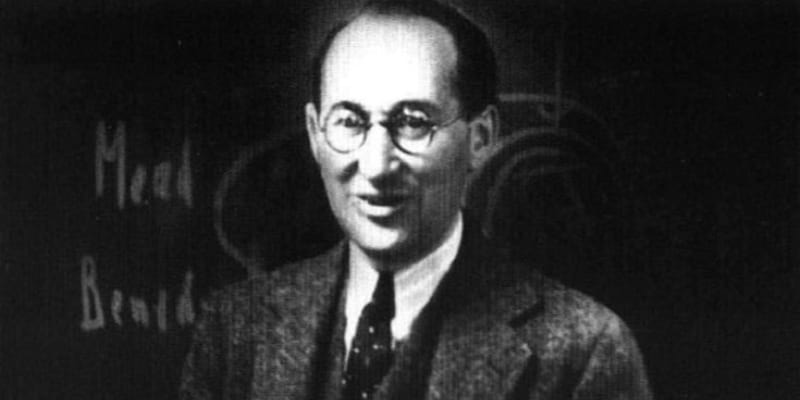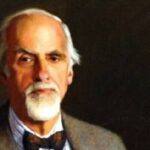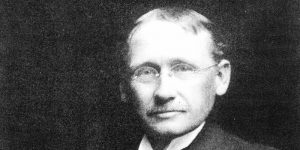Kurt Lewin biography and change theory

Kurt Lewin (1890 – 1947) was a German-American psychologist, who is known as one of the modern pioneers of social, organizational and applied psychology. He is recognized as the founder of the first study group dynamics and organizational development. Famous theories and models, developed by Kurt Lewin are Action Research, the Force Field Analysis (FFA) and the Lewin change model (unfreeze freeze theory).
Who is Kurt Lewin? His biography
Kurt Lewin was born on september 9, 1890. In 1909 Lewin enrolled in the University of Freiburg to study medicine.
He later transferred to the role of director at the University of Munich to study biology.
At that time Lewin got involved in a socialist movement. This movement was involved in fighting anti-Semitism, democratization and improving women’s rights.
He also served in the German army as a soldier during the First World War. He was wounded during the war and returned to Germany. Eventually, he obtained his doctorate (Ph.D.) from the University of Berlin in 1916. During his doctoral research, Lewin developed an interest in philosophical science and Gestalt psychology.
In 1921 he started working as a lecturer at the psychology faculty of the University of Berlin. There he lectured and gave seminars in the fields of study of philosophy and psychology.
Because of his interests and his drive he started researching and publishing as a result of which his work became known internationally. As his work also became known in the United States, Kurt Lewin was invited by the University of Stanford in 1930.
He spent six months there as a visiting professor and he decided to emigrate to the United States with his wife and his daughter. Lewin lectured at the University of Iowa (United States) until 1944. He also worked at the connected Iowa Child Welfare Research Station.
Theory of change
Around this time Kurt Lewin became famous for his research and theories about group dynamics, Action Research, the Force Field Analysis (FFA), the Lewin change model (freeze-unfreeze theory) and leadership climates.
These theories were practically applied and tested during the Second World War, for example the morals of combat troops, psychological warfare and reorienting food consumption away from foods in short supply.
Together with colleagues, Lewin established the Research Center for Group Dynamics at the Institute of Technology in Massachusetts (MIT, United States) in 1944. Kurt Lewin also founded the National Training Laboratories Institute for Applied Behavioral Science, known as the NTL Psychological Institute.
Famous quotes
- “There is nothing so practical as a good theory.”
- “If you want truly to understand something, try to change it.”
- “A successful individual typically sets his next goal somewhat but not too much above his last achievement. In this way he steadily raises his level of aspiration.”
- “Learning is more effective when it is an active rather than a passive process.”
- “Experience alone does not create knowledge.”
- “The chief methodological approach would be that of developing actual group experiments of change, to be carried on in the laboratory or in the field.”
- “Social action, just like physical action, is steered by perception.”
- “Our behaviour is purposeful; we live in a psychological reality or life space that includes not only those parts of our physical and social environment to us but also imagined states that do not currently exist.”
- “General validity of the law and concreteness of the individual case are not antitheses … reference to the totality of the concrete whole situation must take the place of reference to the largest possible historical collection of frequent repetitions.”
- “This means methodologically that the importance of a case, and its validity as proof, cannot be evaluated by the frequency of its occurrence. Finally, it means for psychology, as it did for physics, a transition from an abstract classificatory procedure to an essentially concrete constructive method.”
- “It is not the similarity or dissimilarity of individuals that constitutes a group, but interdependence of fate.”
- “No research without action, no action without research.”
- “When we are young we are like a flowing river – and then we freeze.”
Publications and books by Kurt Lewin et al.
- 1951. Field theory in social science; selected theoretical papers. Harper and Row.
- 1951. Intention, will and need.
- 1948. Resolving social conflicts; selected papers on group dynamics. Harper and Row.
- 1947. Frontiers in group dynamics II. Channels of group life; social planning and action research. Human relations, 1(2), 143-153.
- 1947. Group decision and social change. Readings in social psychology, 3, 197-211.
- 1947. Channels of group life. Human Relations, 1(2), 145.
- 1946. Action research and minority problems. Journal of social issues, 2(4), 34-46.
- 1946. Action research and minority problems, in: G.W. Lewin (Ed) (1948) Resolving Social conflict. Harper and Row.
- 1946. Behaviour and development as a function of the total situation.
- 1946. Force field analysis. The 1973 Annual Handbook for Group Facilitators, 111-13.
- 1945. Conduct, knowledge, and acceptance of new values. Journal of social issues, 1(3), 53-64.
- 1944. Level of aspiration.
- 1944. The dynamics of group action. Educational leadership, 1(4), 195-200.
- 1943. Defining the ‘field at a given time’. Psychological review, 50(3), 292.
- 1943. Forces behind food habits and methods of change. Bulletin of the national Research Council, 108, 35-65.
- 1943. Frustration and regression.
- 1943. Psychology and the process of group living. The Journal of Social Psychology, 17(1), 113-131.
- 1942. Time perspective and morale.
- 1941. Self-hatred among Jews. Contemporary Jewish Record, 4(3), 2.
- 1940. Formalization and progress in psychology. University of Iowa studies in child welfare, 16(3), 9-42.
- 1939. Patterns of aggressive behavior in experimentally created “social climates”. The Journal of Social Psychology, 10(2), 269-299.
- 1939. Field theory and experiment in social psychology: Concepts and methods. American journal of sociology, 868-896.
- 1938. The conceptual representation and the measurement of psychological forces. Martino Fine Books.
- 1938. An experimental approach to the study of autocracy and democracy. A preliminary note’, Sociometry 1: 292-300.
- 1936. Some social‐psychological differences between the United States and Germany. Journal of Personality, 4(4), 265-293.
- 1936. Principles of topological psychology. McGraw-Hill
- 1936. Psychology of Success and Failure. Occupations: The Vocational Guidance Journal, 14(9), 926-930.
- 1936. A Dynamic theory of personality: selected papers. Lewin Press.
- 1935. Psycho‐Sociological Problems of a Minority Group. Journal of Personality, 3(3), 175-187.
- 1931. Environmental forces in child behavior and development. In C. Murchison (Ed.), A handbook of child psychology (94–127).
How to cite this article:
Van Vliet, V. (2012). Kurt Lewin. Retrieved [insert date] from Toolshero: https://www.toolshero.com/toolsheroes/kurt-lewin/
Original publication date: 04/30/2012 | Last update: 09/07/2023
Add a link to this page on your website:
<a href=”https://www.toolshero.com/toolsheroes/kurt-lewin/”>Toolshero: Kurt Lewin</a>











